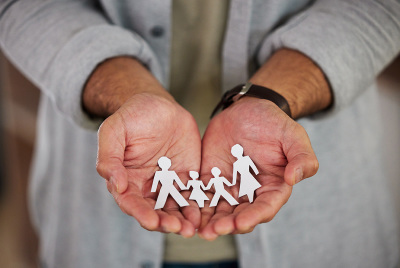In Oregon, political ideology is costing children dearly

The cost of love is rising in America.
Good faith, a compassionate heart, a kind willingness to sacrifice for the sake of others … these are no longer essential qualities for being a parent in some states. Instead, what’s required is ideological correctness.
Exhibit A: Oregon, where Jessica Bates — a widow and mother of five — has been refused the opportunity to adopt children. Not because she’s not a good mom. Not because her family doesn’t have a great deal to offer a lonely boy or girl. Not because there isn’t an incredible need in her state for foster and adoptive families who will take in and care for hurting youngsters.
No, Jessica’s problem is … she’s a devout Christian who holds to biblical views of human sexuality. And since those views won’t let her promote gender ideology in her home, or lie to a child about human biology, the state says she’s not fit to raise children.
Mind you, not just children who identify as transgender. Any child. No boy or girl — even a toddler who does not understand what gender is, or a teenager who shares Jessica’s beliefs — is to be entrusted to her family.
That’s how important gender ideology is to Oregon officials. It’s better for children to stay in the State’s foster care system than risk exposing them to commonly held religious views about the human condition.
A few thoughts to consider:
- According to figures for the last fiscal year, a child typically spends nearly 21 months in Oregon’s foster care system. In some cases, those actually up for adoption have to wait nearly three years. Because state space is at a premium, foster agencies are forced to house some children every month in “temporary lodgings” — i.e., a hotel room. The state prefers all that to a warm bed, a hot meal, and a loving family if the family won’t wave a proverbial Pride flag in the home to placate the state.
- It’s reasonable to assume that — even in a state as blue as Oregon — a significant number of potential foster parents share Jessica’s affirmation of human biology. And, likewise, people who share the compassionate spirit of her Christian faith are particularly likely to take seriously the prospect of bringing a lonely child into their home. This means the state, by categorically rejecting any potential foster parent who holds such beliefs, is immediately — knowingly — decimating the odds of a boy or girl in the system being taken in or adopted.
- Not only is the state effectively punishing Jessica Bates and others like her for their religious beliefs (a clear violation of their First Amendment rights) … they’re punishing a lot of innocent children in the process.
It’s a terrible thing to inflict this kind of deprivation on boys and girls who may or may not understand the concept of “gender identity,” but who most assuredly know how it feels to be forgotten. And can only imagine what it might feel like to be loved.
This is why Jessica Bates has filed a federal lawsuit challenging Oregon’s unjust policy. She is embracing an uphill challenge. A district court has already decided against her. Now, she’s filed an appeal with the U.S. Court of Appeals for the Ninth Circuit, asking judges there to consider the profound consequences of the state’s approach — not only for the constitutional rights of willing foster and adoptive parents like herself but for the present and future of so many vulnerable children.
An ironclad political ideology that consigns children to hotel rooms is a poor substitute for the love of a caring family. Adherence to newly fashionable social trends is a petty excuse for punishing common-sense convictions and widely shared religious beliefs.
Especially when the welfare of so many lonely boys and girls is at stake.
Johannes Widmalm-Delphonse is legal counsel, Center for Conscience Initiatives with Alliance Defending Freedom (@ADFLegal), which is representing Jessica Bates.




























